German Crypto Tax Calculator
Imagine holding a Bitcoin that has doubled in value over the past 14 months and paying no tax on that profit. In Germany, that scenario is the rule, not the exception. The country’s German crypto tax exemption offers a full tax break on crypto gains once the assets have been owned for at least one year. This guide walks you through what the exemption means, how to calculate the holding period, how short‑term gains are taxed, and which tools can keep you on the right side of the tax office.
Key Takeaways
- Holding any crypto for 12 months or more triggers zero tax on any profit, no matter the size.
- Short‑term gains (< 12 months) are taxed at your marginal income‑tax rate (14‑45%) plus a 5.5% solidarity surcharge.
- Germany offers a €1,000 annual allowance for short‑term crypto profits, meaning the first €1k is tax‑free each year.
- Compliance requires precise record‑keeping of purchase dates, amounts, and disposal dates.
- Specialised software like Blockpit or Koinly can automate the calculations.
How the One‑Year Holding Rule Works
The exemption lives in Section 23 EStG of the German Income Tax Act. The law classifies crypto as a “private asset” (private Veräußerungsgeschäfte). When you sell, swap, or spend a crypto asset, the tax office looks at the exact time you acquired it. If the elapsed time is **365 days or more**, the capital gain is completely tax‑free.
Minute‑by‑minute precision matters. If you bought 0.5BTC on1January202409:15CET and sold it on1January202509:14CET, you’re still in the short‑term bucket and owe tax on the profit. Wait one more minute, and the gain disappears from the tax ledger.
The rule applies uniformly to every crypto type-Bitcoin, Ethereum, altcoins, stablecoins, and even non‑fungible tokens (NFTs). The German tax authority, the Bundeszentralamt für Steuern (BZSt), has confirmed that NFTs are treated the same way as other crypto assets for the holding‑period test.
Short‑Term Tax Rates and the €1,000 Allowance
If you dispose of crypto before the year is up, the profit is added to your other taxable income. Germany’s progressive income‑tax bands range from 14% for the lowest bracket to 45% for the highest. On top of that, a 5.5% solidarity surcharge (Solidaritätszuschlag) is levied, pushing the effective maximum rate to **47.375%**.
Good news: the tax code grants a **€1,000 annual exemption** for short‑term crypto gains. This was raised from €600 in 2024, reflecting the growing market. In practice, you can realize up to €1,000 of profit each year without any tax liability, provided you file the appropriate declaration.
Example: You earned €800 from a 3‑month Bitcoin flip and €300 from a 5‑month Ether trade in 2025. The total €1,100 exceeds the allowance by €100, so only that €100 is taxed at your marginal rate.
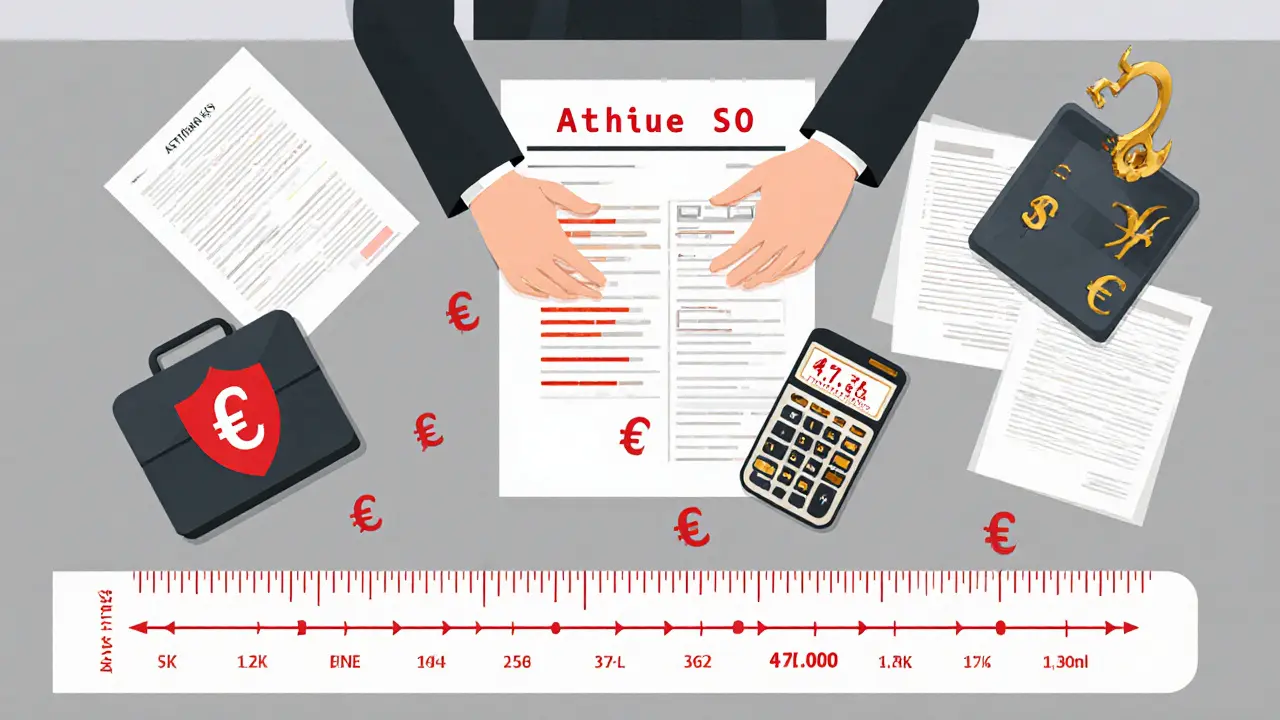
How Germany Stacks Up Against Other Jurisdictions
While the German regime is famously investor‑friendly, it helps to see the numbers side by side. Below is a snapshot of the most common crypto tax models in Europe and beyond.
| Country | Holding‑Period Rule | Short‑Term Rate | Annual Tax‑Free Allowance |
|---|---|---|---|
| Germany | 0% after 12months | 14‑45% + 5.5% Surcharge | €1,000 |
| France | Flat 30% on all gains | 30% total (12.8% CGT + 17.2% social) | None |
| United Kingdom | 0% after 12months (no exemption) | 10% (basic) / 20% (higher) | £3,000 |
| Portugal | 0% on all crypto gains | 0% | None |
| Switzerland | Wealth tax on holdings; gains taxed as income | Varies by canton (≈15‑35%) | None |
Germany’s key advantage is the combination of a full long‑term exemption and a modest €1,000 short‑term buffer, all within a clear legal framework overseen by the Federal Ministry of Finance (BMF).
Practical Steps to Stay Compliant
- Record Every Transaction: Capture date, time, amount, price in EUR, wallet address, and transaction hash. Even a small DCA (dollar‑cost averaging) purchase must be logged separately.
- Calculate Holding Periods: Use spreadsheet formulas or tax‑software to subtract acquisition timestamps from disposal timestamps. Flag any position that falls under 365 days.
- Separate Short‑Term Gains: Sum all profits from disposals under one year. Apply the €1,000 allowance, then add the remainder to your yearly taxable income.
- Report on the Anlage SO: German tax returns have a specific section (Annex SO) for private sales transactions. Indicate the total profit, the portion covered by the allowance, and the taxable remainder.
- Keep Supporting Documents: Export CSVs from exchanges, screenshots of wallet balances, and PDFs of transaction receipts. The BZSt can request these during an audit.
While the learning curve is moderate, most investors master the basics within a weekend. Complex cases-like staking rewards, DeFi lending, or crypto‑backed loans-often need professional advice because the tax treatment differs (e.g., staking is considered income, not a capital gain).
Tools and Services for German Crypto Tax
Manual spreadsheets quickly become unwieldy for active traders. Below are the most widely adopted solutions for German taxpayers:
- Blockpit: Offers a dedicated German tax module, automatically applies the 1‑year exemption, and generates the required Anlage SO export. Setup time: 2‑4hours for a typical portfolio.
- Koinly: Supports multi‑exchange imports and provides a clear holding‑period calculator. It also flags transactions that need professional review.
- CoinTracker: Good for English‑speaking investors; integrates with German tax forms via CSV export.
Professional crypto accountants charge between €150 and €500 per year, depending on transaction volume. For most hobbyists with fewer than 100 trades, the software fees (≈€50‑€100) are more cost‑effective.
Future Outlook and Potential Changes
As of October2025, the German government has signaled no immediate amendments to the 1‑year rule. However, the EU’s new Markets in Crypto‑Assets (MiCA) regulation is set to take effect in 2026, introducing uniform disclosures and licensing for crypto‑service providers. While MiCA does not target tax rates directly, it could create pressure for EU‑wide tax harmonisation within the next decade.
Analysts predict that Germany will retain its exemption to stay attractive for blockchain startups and institutional investors. Any shift would likely be gradual, with transitional periods announced well ahead of implementation.
In the meantime, the rule continues to shape investment behaviour. Reddit threads from r/Finanzen frequently discuss “HODL advantage” strategies, where users deliberately wait 12months before selling to lock in a tax‑free profit. The psychological benefit of knowing that long‑term gains vanish from your tax bill encourages a more stable market for crypto assets in Germany.
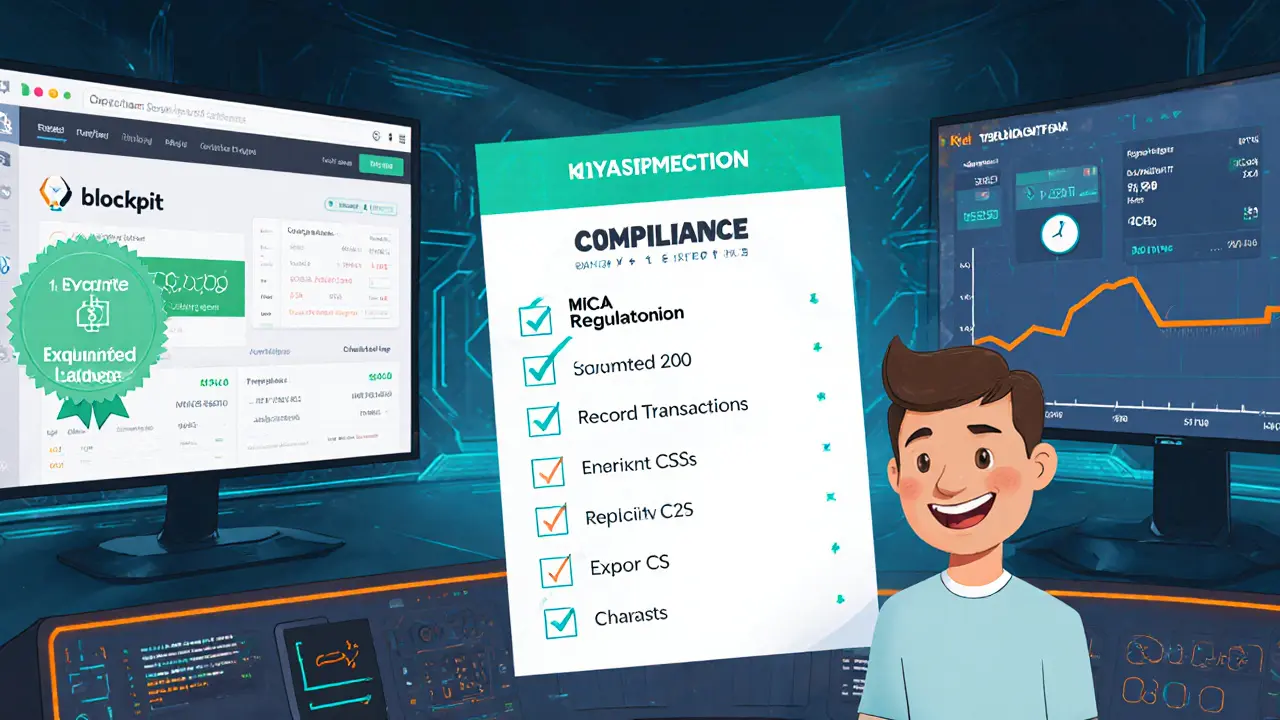
Frequently Asked Questions
Do I need to pay tax on crypto I still hold after 12 months?
No. As long as the asset remains in your possession for at least 365 days, any increase in value is tax‑free, even if you haven’t sold it yet.
How is the €1,000 short‑term allowance applied?
Add up all profits from disposals held under one year. The first €1,000 is exempt; the remaining amount is added to your taxable income and taxed at your marginal rate plus the solidarity surcharge.
Are staking rewards taxed the same way as capital gains?
No. Staking rewards are considered ordinary income and are taxed when received, regardless of how long you keep the underlying tokens.
What documentation should I keep for a tax audit?
Exported CSVs from every exchange, wallet address lists, transaction hashes, screenshots of purchase confirmations, and a summary of holding periods for each asset.
Can I use crypto tax software if I trade on DeFi platforms?
Most software can import DeFi transaction data via wallet CSVs, but the classification of lending or liquidity‑provider rewards may need manual adjustment or professional advice.



 Finance
Finance
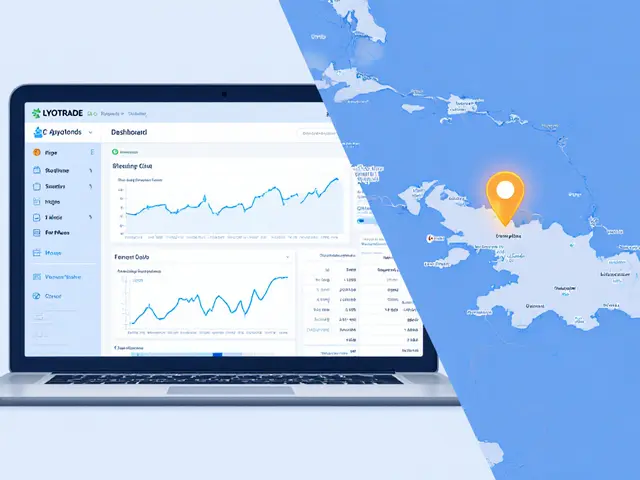
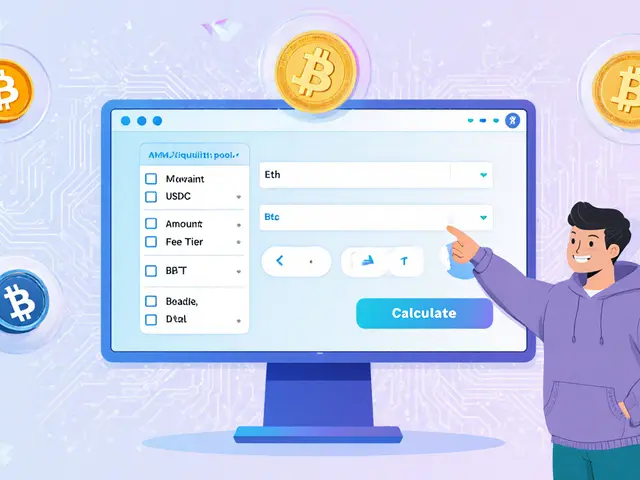
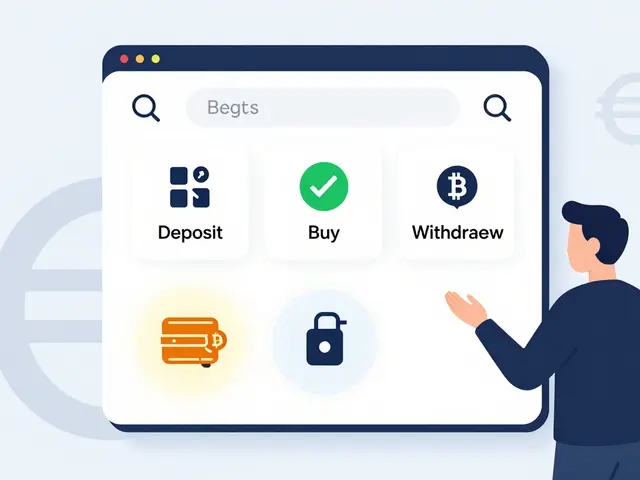
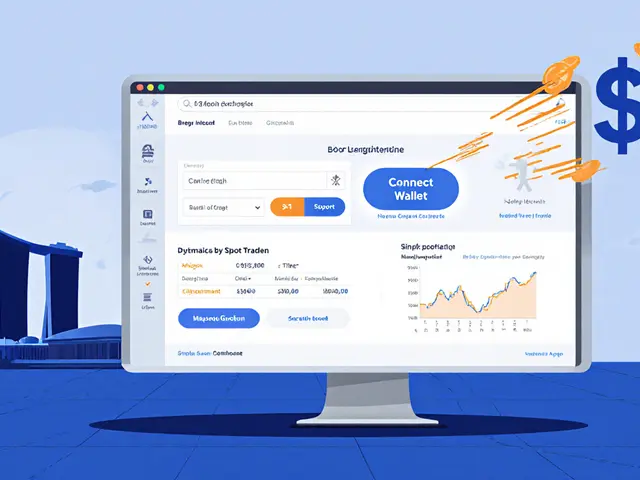

Ayaz Mudarris
March 10, 2025 AT 23:48Indeed, the German one‑year holding rule presents a compelling incentive for long‑term investors. By maintaining positions for at least 365 days, any capital gain becomes entirely tax‑free, an outcome that aligns with prudent portfolio stewardship. Moreover, the €1,000 short‑term allowance provides a modest buffer for those occasional tactical trades. It is advisable to keep meticulous records to substantiate the holding period in case of a fiscal audit.
Irene Tien MD MSc
March 20, 2025 AT 06:02Oh, the sweet irony of a system that pretends to be transparent while secretly rewarding the very same elite class that invents the rules! You see, every minute you wait beyond 364 days is essentially a covert bribe to the tax office, and the €1,000 allowance is just a decorative garnish on an otherwise voracious beast. In reality, the statutory language is a labyrinthine maze designed to confound the average citizen, forcing them to hire pricey consultants or, worse, surrender to the endless paperwork vortex. So while the headline reads "zero tax after a year," the hidden cost is the perpetual anxiety of double‑checking timestamps down to the second, lest you inadvertently slip into the taxable abyss.
Karl Livingston
March 29, 2025 AT 12:15I get why some people feel uneasy about the strict timing; a single minute can make the difference. Still, once you set up a simple spreadsheet, the process becomes almost painless.
Kyle Hidding
April 7, 2025 AT 19:28The analysis often overlooks the fact that the German tax code treats every micro‑transaction as a taxable event unless the 365‑day window is perfectly met. This creates a compliance nightmare for high‑frequency traders, who must parse each trade through a convoluted algorithm to determine tax liability. In practice, the rule incentivizes hoarding rather than efficient market participation, which is counterproductive to liquidity.
Andrea Tan
April 17, 2025 AT 01:42Yeah, the hoarding vibe can be a double‑edged sword - you get tax‑free gains, but you might miss out on market moves. I usually set a reminder just before the year mark so I don’t forget.
Gaurav Gautam
April 26, 2025 AT 07:55From my experience, the key is to embrace the rule as a strategic tool rather than a bureaucratic hurdle. By aligning your investment horizon with the 12‑month threshold, you can naturally reduce tax drag while still participating in market rallies. It also encourages disciplined, long‑term thinking, which tends to improve overall risk‑adjusted returns.
Robert Eliason
May 5, 2025 AT 14:08i coudnt agree more but also i think its all a big scam lol the gov just want us to hold forever thats why they give a little tax break thats it.
Cody Harrington
May 14, 2025 AT 20:22I've found that using Blockpit for the automatic holding‑period calculation saves a lot of headaches. The export to the German Anlage SO form is basically plug‑and‑play.
Chris Hayes
May 24, 2025 AT 02:35While automation helps, it's still crucial to verify each transaction manually. Errors in CSV imports can lead to mis‑reported gains, which the BZSt may flag during an audit.
Samuel Wilson
June 2, 2025 AT 08:48For anyone uncertain about the filing process, I recommend beginning with a clear ledger of acquisition dates and amounts. Once you have that, populating the Anlage SO becomes straightforward, and you can avoid unnecessary scrutiny from tax authorities.
Rae Harris
June 11, 2025 AT 15:02Honestly, the whole "one‑year rule" is just a marketing ploy to keep people locked in. If you’re into active trading, you’ll end up paying way more in transaction fees than you’d ever save on taxes.
Danny Locher
June 20, 2025 AT 21:15Sounds like a solid plan for long‑term holders.
Emily Pelton
June 30, 2025 AT 03:28Absolutely, the benefits are crystal clear, and the mechanics, while intricate, are completely manageable with the right tools, so there’s no excuse for neglect, especially when the potential tax savings are so substantial!!!
sandi khardani
July 9, 2025 AT 09:42Let me break down why the German crypto tax framework is, in my opinion, both a marvel of legislative foresight and a labyrinthine nightmare for the average user. First, the one‑year holding period is a clear, binary condition that theoretically simplifies tax calculations-if you hold beyond 365 days, you owe nothing. However, the devil is in the details: every transaction timestamp must be recorded down to the second, and any deviation, even by a minute, re‑classifies the gain as short‑term, subjecting it to the full marginal tax rate plus the 5.5% solidarity surcharge. Second, the €1,000 annual allowance, while modest, introduces an additional layer of aggregation; you must sum all short‑term gains across the fiscal year and then apply the exemption, which can become cumbersome when dealing with dozens of trades across multiple exchanges. Third, the requirement to file the Anlage SO means that you’re not just reporting a net profit but providing a detailed ledger of acquisition dates, disposal dates, and calculated holding periods for each asset, a task that can quickly outstrip the capabilities of simple spreadsheet software. Fourth, the treatment of NFTs and DeFi derivatives is still evolving, and the BaFin’s guidance occasionally lags behind market innovation, leaving investors in a gray area regarding classification and tax treatment. Fifth, while tools like Blockpit and Koinly automate much of the heavy lifting, they are not infallible; mismatched CSV imports or API hiccups can produce erroneous reports, forcing the taxpayer to perform manual reconciliations. Sixth, the psychological impact of the rule cannot be ignored: many traders adopt a “HODL‑until‑tax‑free” strategy, which may not align with optimal market timing, potentially resulting in opportunity costs that outweigh the tax benefit. Seventh, the rule is not uniformly applied across all EU jurisdictions, meaning that cross‑border investors need to navigate a patchwork of differing holding‑period thresholds and allowances, increasing compliance complexity. Eighth, the German tax authorities retain the right to audit, and without meticulous documentation-including wallets, transaction hashes, and exchange statements-taxpayers risk penalties. Ninth, the solidarity surcharge, though seemingly marginal, effectively raises the top marginal rate to 47.375%, a figure that can substantially erode profit margins for high‑income individuals. Tenth, recent legislative proposals hint at possible adjustments to the €1,000 allowance, suggesting that future taxpayers might face stricter thresholds. Eleventh, the rule’s reliance on the Gregorian calendar means that leap years subtly affect the exact day count, which can be a source of confusion for those calculating manually. Twelfth, the policy’s intent to encourage long‑term holding aligns with broader economic goals of market stability, yet it may also inadvertently suppress liquidity. Thirteenth, the tax‑free status of long‑term gains does not extend to staking rewards, which are taxed as ordinary income upon receipt, further complicating the tax picture for active participants in DeFi. Fourteenth, the overall compliance burden, while mitigated by modern software, still represents a non‑trivial cost-both in time and money-especially for traders with high transaction volumes. Finally, despite these challenges, the German framework remains one of the most investor‑friendly in the world, offering a clear path to tax‑free crypto gains for those willing to navigate its intricacies with diligence and patience.
Donald Barrett
July 18, 2025 AT 15:55That was unnecessarily verbose; the takeaway is simple: hold for a year or pay the tax. No need for a dissertation.